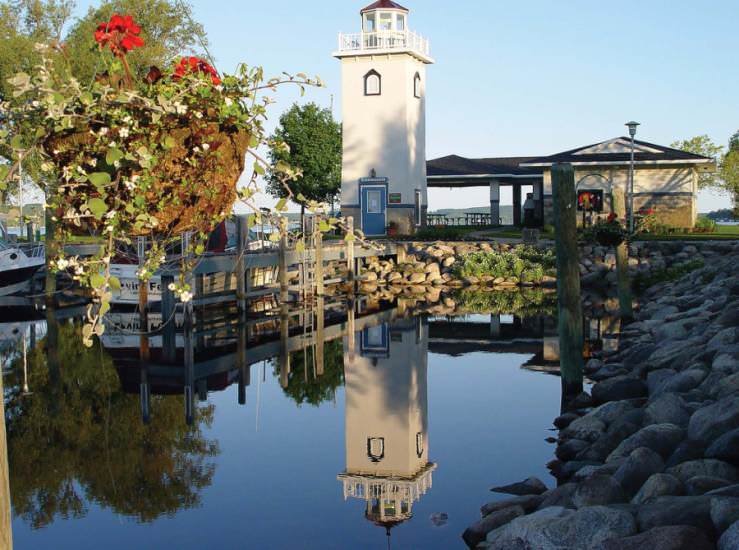Using Conservancy Tools to Preserve Year-Round Housing Opportunities
Housing North has launched a new program to preserve and expand year-round housing opportunities - and has implemented its first project in the program, in partnership with the City of Charlevoix and local funders.
In the seasonal community of Charlevoix, workers struggle to find year-round housing, and as a result, businesses then struggle to find workers. City leaders have been looking at creative solutions for new housing development, but want to be sure that those solutions result in homes that are available to the workforce - not just used seasonally, or turned into short-term rentals. Housing North and the City of Charlevoix have been exploring new tools to meet those goals, including some that are used by land conservancies, like deed restrictions, that can ensure long-term housing availability for the workforce.
Vail, Colorado, offered an important example: the Vail InDeed program, a voluntary approach to acquiring deed restrictions that permanently require year-round occupancy in the home, by either homeowners or long-term renters. Vail housing program staff shared resources and guidance with Housing North and Charlevoix stakeholders, providing the outline of a structure for a local “housing conservancy” program here.
The new program provides incentives or options for people to record a deed restriction on an existing or newly purchased residential property. Deed restrictions can be purchased, with values negotiated for each property; or they can be donated by the property owner. Once recorded, a deed restriction stays with the title and survives changes in ownership over time. This means the new program will permanently assure long term resident housing.
New construction often seems like the only solution to the region’s housing shortages - but it’s difficult, time-consuming, and expensive, requiring layers of subsidy and incentives in order for new homes to be affordable to the workforce. The new deed restriction program offers an important alternative to new construction. It can make use of existing homes and land, ensuring that homes are available for a fraction of the cost.
The program had its first application in April 2020, with the rezoning and purchase of a former church in the City of Charlevoix. A local donor provided funds to the program through the Charlevoix Community Foundation, enabling Housing North to purchase a deed restriction as part of the real estate transaction. As the first property in the program, with the opportunity for two additional units to be added to the property, the project demonstrates the potential for the program to incentivize the creation of new long-term housing units.
It could also help to keep existing homeowners in their current homes, close the financial gap in affordability by providing some additional down payment for new home purchasers, and prevent homes from being sold for speculative development for vacation rentals.
Housing North will hold the deed restriction and administer the program, but will continue to work closely with the City of Charlevoix as partners in facilitating the program locally.
The Housing Conservancy approach brings some badly-needed new tools to our region’s housing shortages, and could support additional community goals and housing needs. Housing North will look to work with the City of Charlevoix and other communities to expand the program to meet diverse housing needs specific to each community, using this and, potentially, additional emerging conservancy-based models.
Related Posts






